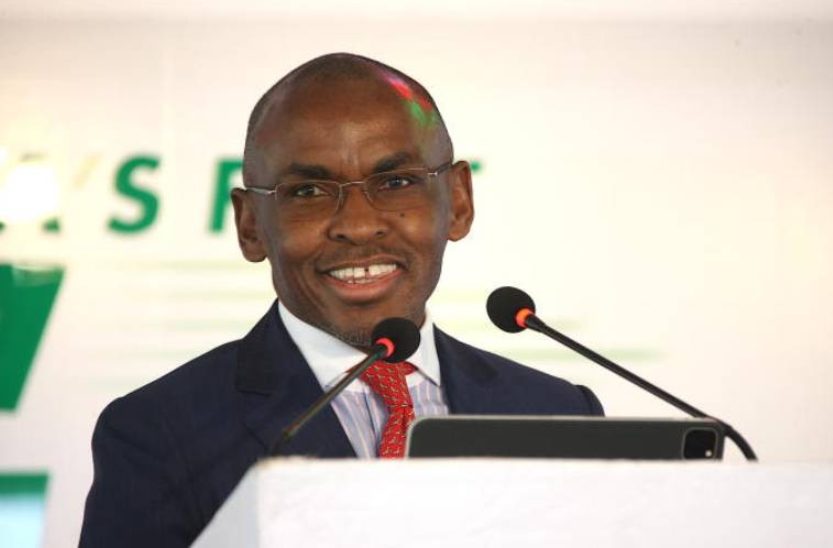Safaricom PLC has implemented a strategic adjustment to its executive compensation framework by notably slashing CEO Peter Ndegwa’s annual bonus by Ksh 62 million for the fiscal year ending March 2024.

This marks the first decrease in Mr Ndegwa’s compensation since he assumed office in April 2020.
According to Safaricom’s latest annual report, Mr Ndegwa received a bonus of Ksh 134.1 million for the period, down from Ksh 196.3 million in the previous fiscal year.
This decline in the bonus contributed to a reduction in his total pay, which fell to Ksh 252.3 million from Ksh 313.1 million year-on-year.
The report outlines that executive directors, including Mr Ndegwa and Chief Finance Officer Dilip Pal, receive remuneration based on negotiated employment contracts and are employed on a permanent basis.
However, specific performance metrics influencing annual bonuses were not detailed in the disclosure.
On top of a a base salary, executive perks include annual performance-based bonuses, shares, residential accommodation, utility bill payments and club memberships, as stated in Safaricom’s 2024 annual report.
These benefits are typical for listed companies and are tied to performance parameters such as profitability, cash flow growth, market share performance, shareholder returns (including dividends) and development of new revenue streams.
Financially, Safaricom reported an increase in consolidated net profit to Ksh 62.99 billion for the year ending March, up from Ksh 62.26 billion previously.
The performance of its Kenyan operations showed robust growth, with Safaricom Kenya recording a 13.7 percent rise in net profit to Ksh 84.74 billion.
Safaricom maintained its total dividend for the year at Ksh 1.20 per share, resulting in a total payout of Ksh 48.08 billion.
The dividend was split into an interim payout of Ksh 0.55 per share disbursed in March, with a final dividend of Ksh 0.65 per share scheduled for payment on August 31 to shareholders on record as of July 31.
During the reporting period, Safaricom’s share price experienced a slight decline of 1.9 percent, closing at Ksh 17.55 per share compared to Ksh 18.10 in the previous year.
The company also operates an employee performance share award plan, wherein it purchases shares in the market and assigns them to specific employees.
These shares vest after a three-year period, allowing employees to either sell them or retain ownership.


















